Invited Speakers in 2025.
2026 information will coming soon.
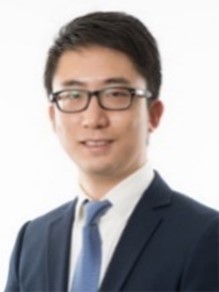
Yan Xu
Nanyang Technological University, Singapore
Bio: Dr Xu received his B.E. and M.E. degrees from South China University of Technology, Guangzhou, China, in 2008 and 2011, and PhD degree from University of Newcastle, Newcastle, Australia, in 2013, all in electrical engineering. He is now holding the Nanyang Assistant Professorship at NTU Singapore, and also a Cluster Director at Energy Research Institute @ NTU (ERI@N).
Prior to joining NTU, he held the University of
Sydney Postdoctoral Fellowship in Australia. Between 2009 and 2011,
he was with Hong Kong Polytechnic University, and from late 2015 to
early 2016, he was with Electric Power Research Institute of China
Southern Grid. He has published 105 SCI-indexed journal papers
(including 65 in IEEE Transactions and 23 in IET journals), as well
as over 50 international conference papers. 6 of his publications
are listed as the “web-of-science highly cited paper”. He has also
received 7 paper contest awards and conference best paper awards
from IEEE and IET. His research outcomes have been practically
applied by power utilities in Australia, USA, Hong Kong, Macau, and
China Mainland.
In Singapore, his research is funded by National Research Foundation
(NRF), Ministry of Education (MOE), Energy Market Authority (EMA),
Housing & Development Board (HDB), DSO National Laboratories,
Rolls-Royce, etc. He has also been collaborating with a number of
universities in Australia, China, Hong Kong, UK, Denmark, France,
Switzerland, US.
Senior Member of the IEEE, Dr Xu is serving as an
Editor for IEEE Transactions on Smart Grid and a committee member
for IEEE PES Singapore Chapter.
Research Interests: Renewable-energy power system's stability,
control, and optimization, Data-analytics for smart grid
applications, Microgrid and multi-energy system, Electric vehicle
integration to grid.
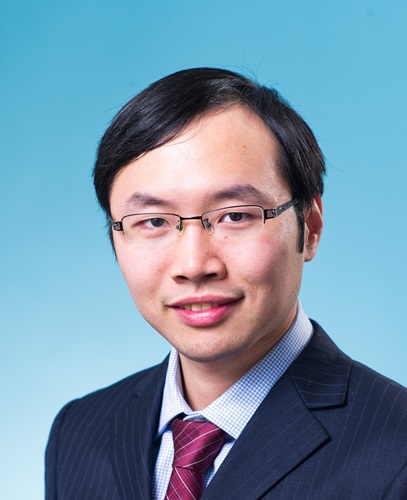
Zijun Zhang
City University of Hong Kong, Hong Kong, China
Bio: Prof. Zhang received his Ph.D. and
M.S. degrees in Industrial Engineering from the University of Iowa,
Iowa City, IA, USA, in 2012 and 2009, respectively, and B.Eng.
degree in Systems Engineering and Engineering Management from the
Chinese University of Hong Kong, Hong Kong, China, in 2008.
Prof. Zhang's research focuses on data mining and computational
intelligence with applications in modeling, monitoring, optimization
and operations of systems in the renewable energy, energy saving,
and intelligent transportation. 2022, 2023 “Stanford's top 2% most
highly cited scientists” The Stanford's list of top 2% most cited
scientists.
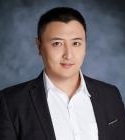
Mingyang Sun
Peking University, China
Bio: TBA
简介:孙铭阳,研究员、博雅青年学者、博士生导师, IEEE Senior
Member。入选国家高层次青年人才计划,全球2%顶尖科学家,中国科协“青年人才托举工程”、浙江省特聘专家、浙江省“万人计划”青年拔尖人才,兼任英国帝国理工学院Honorary
Lecturer。毕业于英国帝国理工学院控制与电力研究所,师从英国能源系统专家Goran
Strbac教授。2024年6月加入北京大学工学院、工业工程与管理系, IDEAL-Lab 低碳能源系统智能决策实验室负责人。
多年来一直从事智能电网和能源系统领域优化和智能决策等关键问题的研究,主要研究内容包括基于人工智能的能源系统调度控制、能源大数据分析、建模与预测、能源系统优化规划等国际前沿热点课题。受邀担任工业信息领域国际顶级期刊IEEE
Trans. on Industrial Informatics、IET Smart Grid编委和Applied
Energy、Advances in Applied Energy首席客座编委。研究成果发表/录用Nature
Communications、能源与电力顶刊IEEE Trans. on Power Systems、IEEE Trans. on
Smart Grid、Applied Energy、人工智能旗舰会议AAAI(CCF-A)、IJCAI
(CCF-A)、安全四大顶会USENIX Security、NDSS等论文80余篇。ESI高被引论文3篇,入选Applied
Energy近五年高被引论文TOP25。获得IEEE Trans. on Smart Grid
2023年度最佳论文奖、IEEE电力与能源协会最高级别学术年会2016 IEEE PES-GM会议最佳论文奖、2016
PMAPS会议最佳论文奖及IEEE TrustCom 2022 最佳论文奖。
任中国自动化学会新能源与储能系统控制专委会委员、青年工作委员会委员、IEEE PES
中国区电力系统运行、规划与经济技术委员会常务理事,2019 Global Automation & Control
Workshop程序主席,中国计算机学会CCF
YOCSEF杭州副主席。主持多项国家自然科学基金项目、项目课题、国家重点研发计划子课题、省重点项目、CCF科研获奖项目等。曾参与承担多个英国、欧盟重大科研项目,其中包括欧盟“地平线2020计划”项目EU-SysFlex(2000万欧元)、全球首个泛欧洲电网动态安全评估项目iTesla(欧盟第七框架计划FP7支持,
1940万欧元),英国最大型智能电网试验项目LCL
(2830万英镑),世界首个具有全需求侧灵活性的规模化智能混合热泵试验项目FREEDOM
(520万英镑)等。与英国、法国、澳大利亚、美国等国家的科研机构与知名学者保持联系与密切合作,其中包括IEEE Control
Systems Society主席Thomas Parisini教授(IFAC/IEEE Fellow)、英国皇家工程院院士Tim
Green教授(IEEE Fellow),IEEE TAC主编Alessandro Astolfi教授(IFAC/IEEE
Fellow)等。
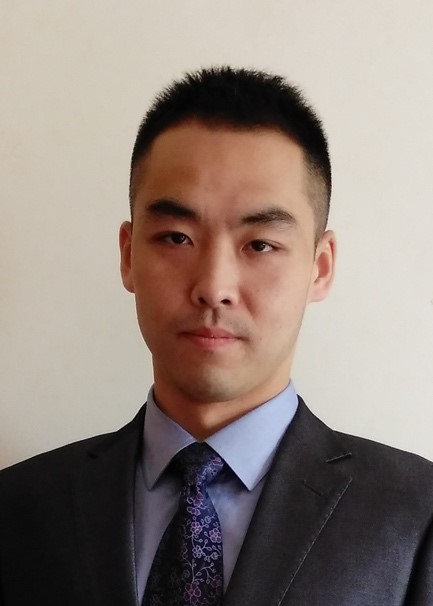
Ce Shang
Shanghai Jiao Tong University, China
Bio: TBA
简介:尚策,上海交通大学电气工程系副教授。研究兴趣包含:能源电力系统运行规划与可靠性评估,最优化与机器学习方法。2011年获浙江大学学士学位,2016年获新加坡国立大学博士学位。
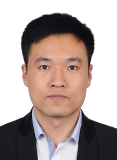
Zhouyang Ren
Chongqing University, China
Bio: TBA
简介:任洲洋,博士(后),IEEE Senior
Member,副教授,博士生导师。主要从事智慧能源优化运行与规划、电力系统人工智能等领域的研究和工程实践工作。近五年,主持国家自然科学基金项目、科技部高端外国专家引进项目、院士基金等近10项;作为主研人参与国际合作重点项目、国家重点研发项目、加拿大NSERC、加拿大BC
Hydro、国家电网、南方电网等资助的各类项目近20项;以第一完成人获得省部级自然科学二等奖一项;发表IEEE
Trans.等高水平SCI/EI论文20余篇,申请国家发明专利10余项,授权5项,另外,参与制定国际标准1项。
担任IET Renewable Power Generation(SCI二区)等国际电力领域知名期刊的副主编、IEEE
PES新能源电力系统调度运行技术委员会副主席、IEEE Standard 859 Working
Group委员、APPEEC技术委员会主席等,共有20余个国内外学术兼职。在IEEE PES General
Meeting等国际会议上多次策划、组织Panel Session/Special Session,做大会特邀报告和邀请报告近10次,
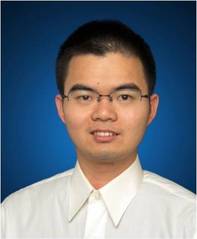
Yinliang Xu
Tsinghua University (Shen Zhen), China
Bio: TBA
简介:主要研究领域包括智能电网先进控制,分布式控制与优化算法,低碳能源系统优化等,组织实施和参与了多个网、省、地综合能量管理系统。IEEE协会高级会员,在国内外重要学术期刊和国际会议上发表论文及报告130余篇,其中发表/已录用SCI检索论文100余篇(以第一或通讯作者发表SCI论文65篇,电气工程领域国际顶级 IEEE transaction论文50篇),出版第一作者专著一本。2020, 2021连续两年入选由斯坦福大学John P.A.Ioannidis教授团队与Elsevier旗下Mendeley Data发布的“全球前2%顶尖科学家榜单”

Yi Wang
The University of Hong Kong, Hong Kong, China
Bio: Dr. Yi Wang received his Bachelor's
degree in electrical engineering from Huazhong University of Science
and Technology (HUST) in June 2014 and his Ph.D. degree in
electrical engineering from Tsinghua University in Jan. 2019. From
March 2017 to April 2018, he was an exchange student researcher at
the University of Washington. Before joining the University of Hong
Kong in September 2021, he served as a Postdoctoral Researcher in
the Power Systems Laboratory, ETH Zurich, from February 2019 to
August 2021.
He currently serves as the secretary of IEEE Customer Systems &
Smart Buildings Subcommittee, the secretary of IEEE PES Working
Group on Energy Forecasting and Analytics, and the secretary of
CIGRE Working Group on the Application of 5G Technology to Smart
Grids. He also serves as the Associate Editor for IEEE Transactions
on Smart Grid, IEEE Systems Journal, and IET Renewable Power
Generation.

Can Wan
Zhejiang University, China
万灿,浙江大学
Bio: TBA
简介:万灿,2008年毕业于浙江大学,2015年于香港理工大学获博士学位,2015年3月-2017年3月于清华大学电机系从事博士后研究工作,2017年4月至2020年12月为浙江大学“百人计划”研究员(tenure-track)、博士生导师,2021年1月至今为浙江大学电气工程学院研究员(长聘)、博士生导师。
曾为香港理工大学电机工程学系副研究员/助理研究员、香港城市大学研究员、丹麦科技大学访问博士/助理研究员、美国阿贡国家实验室访问研究员。参与了中国、香港、丹麦等国家和地区的多个与新能源及智能电网相关的研究项目,其中关于风电功率概率预测的研究成果为电力系统领域顶级期刊IEEE
Trans. on Power Systems的 Invited
Paper,并获评ESI高被引论文。与丹麦、香港、澳大利亚、美国、英国等国家和地区的研究机构保持合作。
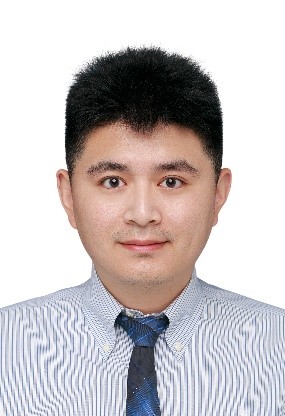
Yijun Xu
Southeast University, China
徐一骏,东南大学
Bio: Dr. Yijun Xu is a full professor at
Southeast University, Nanjing, China. He received his Ph.D. degree
from the Bradley Department of Electrical and Computer Engineering
at Virginia Tech, Falls Church, VA, in December 2018. He worked as a
research assistant professor at Virginia Tech-Northern Virginia
Center, Falls Church, VA, in 2021. He was a postdoc associate at the
same institute from 2019 to 2020.
He did a computation internship at Lawrence Livermore National
Laboratory, Livermore, CA, and a power engineer internship at ETAP
-- Operation Technology, Inc., Irvine, California, in 2018 and 2015,
respectively.
His research interests include power system uncertainty
quantification, uncertainty inversion, and decision-making under
uncertainty. Dr. Xu is currently serving as an Associate Editor of
the IET Generation, Transmission & Distribution, an Associate Editor
of the IET Renewable Power Generation, and the Young Editor of the
Power System Protection and Control. He is the co-chair of the IEEE
Task Force on Power System Uncertainty Quantification and
Uncertainty-Aware Decision-Making.